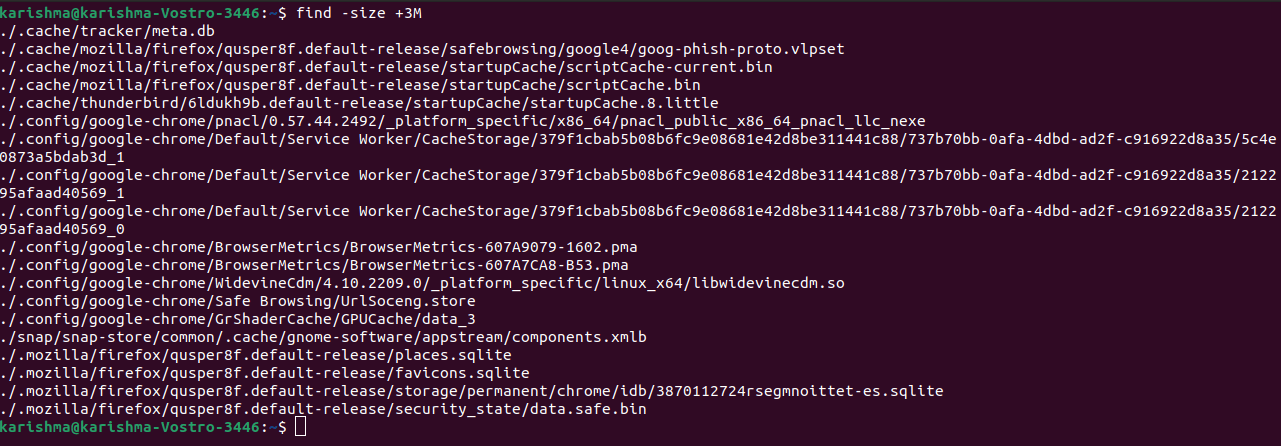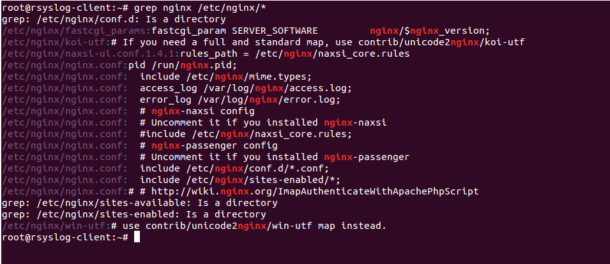

The following example searches for *.err files in the /home/username/ directory and all sub-directories: find /home/username/ -name "*.err" Use find from the command line to locate a specific file by name or extension. Find a File in Linux by Name or Extension By using the -exec flag ( find -exec), matches, which can be files, directories, symbolic links, system devices, etc., can be found and immediately processed within the same command. You can use the find command to search for a file or directory on your file system. The find command in Linux is used to find a file (or files) by recursively filtering objects in the file system based on a simple conditional mechanism.
Recursivly find file linux how to#
This article covers the basics of how to find a file in Linux using the CLI. This is especially true if you are running Linux without a graphical user interface and need to rely on the command line. Recurse in directories skip file matching PATTERN.Īs you’ve seen, the grep -r command makes it easy to recursively search directories for all files that match the search pattern you specify, and the syntax is much shorter than the equivalent find/grep command.įor more information on the find command, see my Linux find command examples, and for more information on the grep command, see my Linux grep command examples.When you have to find a file in Linux, it’s sometimes not as easy as finding a file in another operating system. Recurse in directories only searching file matching PATTERN. Read all files under each directory, recursively this is Here’s the section of the Linux grep man page that discusses the -r flag: As shown, you can use other normal grep flags as well, including -i to ignore case, -v to reverse the meaning of the search, etc.If you forget to add any directories, grep will attempt to read from standard input (as usual). Don’t forget to list one or more directories at the end of your grep command.This flag tells grep to print the matching filenames. This particular use of the grep command doesn’t make much sense unless you use it with the -l (lowercase "L") argument as well.Note that in this case, quotes are required around my search pattern.
Recursivly find file linux code#
Since I tend to mark comments in my code with my initials ("aja") or my name ("alvin"), this recursive egrep command shows how to search for those two patterns, again in a case-insensitive manner: You can also perform recursive searches with the egrep command, which lets you search for multiple patterns at one time. In this example, the search is made case-insensitive by adding the -i argument to the grep command. This next example shows how to recursively search two unrelated directories for the case-insensitive string "alvin": Your recursive grep searches don’t have to be limited to just the current directory. If you haven’t used commands like these before, to demonstrate the results of this search, in a PHP project directory I’m working in right now, this command returns a list of files like this:

This command can be read as, “Search all files in all subdirectories of the current directory for the string ‘alvin’, and print the filenames that contain this pattern.” It’s an extremely powerful approach for recursively searching files in all subdirectories that match the pattern I specify.

Solution 1: Combine 'find' and 'grep'įor years I always used variations of the following Linux find and grep commands to recursively search subdirectories for files that match a grep pattern:įind. Two solutions are shown next, followed by some additional details which may be useful. Unix/Linux grep FAQ: How can I perform a recursive search with the grep command in Linux?


 0 kommentar(er)
0 kommentar(er)
